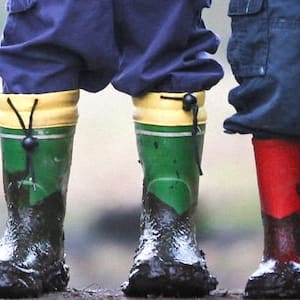play possum: Idiom Meaning and Origin
What does ‘play possum’ mean?
The idiom "play possum" means to pretend to be dead or unconscious in order to avoid a dangerous or uncomfortable situation.

Idiom Explorer
The idiom "sleep" means to rest or be in a state of unconsciousness, usually at night, when the body and mind rejuvenate.
The idiom "pull someone's leg" means to play a practical joke or tease someone in a light-hearted way, often by making them believe something that is not true.
The idiom "play with fire" means to engage in a dangerous or risky activity, often knowing the potential consequences but still proceeding anyway.
The idiom "play the victim card" means to intentionally act like a victim in order to gain sympathy or to avoid taking responsibility for one's actions.
The idiom "play the fool" means to act silly or foolish, often for amusement or as a way to hide one's true thoughts or intentions.
The idiom "play silly buggers" means to behave foolishly or engage in pointless or mischievous actions. It is often used to describe someone who is being deliberately difficult or acting in a way that is not serious or productive.
The idiom "play it cool" means to remain calm and composed in a situation, especially when feeling nervous or under pressure. It involves maintaining a nonchalant or unaffected attitude to hide one's true emotions or intentions.
The idiom "play hooky" means to skip school or work without permission or a valid reason.
The idiom "play games" means to behave in a deceptive or manipulative way, often for personal gain or advantage.
The idiom "play for time" means to delay taking action in order to gain more time or to avoid making a decision immediately.
Ingenious Animal Tactics
The idiom "play possum" is a commonly used phrase in American English that has its roots in the behavior of the opossum, a North American marsupial. When threatened or attacked, the opossum often goes into a state of feigned death, appearing lifeless and limp. This behavior has led to the phrase "play possum," which means to feign ignorance or act as if one is unaware or unconscious, usually to avoid confrontation or responsibility.
The origin of the idiom can be traced back to the early 19th century. The phrase "playing possum" was first recorded in American English in the mid-1800s, though the behavior of the opossum had likely been observed and commented on prior to that time. It was widely used in various contexts, including literature, newspapers, and everyday conversation.
The idiom "play possum" is typically used in situations where an individual pretends to be unaware or unresponsive in order to deceive or manipulate others. This can be seen in various scenarios, such as a child pretending to be asleep when asked to do a chore, or an employee acting clueless when faced with a difficult task. It is a way to avoid taking responsibility or facing potential consequences.
There are several reasons why the opossum's behavior became associated with this idiom. First, the opossum's feigned death can be an effective defense mechanism. By appearing lifeless, it may trick predators into thinking it is not a threat or not worth pursuing. Similarly, humans who "play possum" may hope to deceive others into thinking they are incapable or uninvolved, thus avoiding conflict or repercussions.
One related idiom that comes to mind is "play the fool." Just as an opossum "plays possum," pretending to be unaware or unresponsive, someone who "plays the fool" acts foolishly or stupidly, often to avoid taking responsibility or facing consequences. This can be seen in situations where an individual purposefully acts ignorant or naive to escape blame or scrutiny.
The idiom "play along" is also related to "play possum." When someone "plays along," they go along with a situation or act as if they are in agreement or complying, even if they may not be. This can be similar to "playing possum" in that it involves feigning a particular response or attitude to avoid conflict or confrontation.
Another related idiom is "play it cool." Just as an opossum "plays possum" by pretending to be lifeless and unresponsive, someone who "plays it cool" maintains a calm and composed demeanor, often in challenging or stressful situations. This can involve feigning indifference or nonchalance to mask their true thoughts or feelings.
Additionally, the idiom "play games" can be connected to "play possum." When someone "plays games," they engage in manipulative or deceptive behavior in order to gain an advantage or control a situation. This can involve feigning ignorance or pretending to not know something, similar to how an opossum "plays possum" to deceive potential threats.
Lastly, the idiom "play the victim card" is also related to "play possum." When someone "plays the victim card," they act as if they are the victim in a situation, often to gain sympathy or avoid taking responsibility. This can be seen as a form of deception, where the individual feigns vulnerability or powerlessness to manipulate others' perceptions or actions.
The idiom "play possum" originated from the behavior of the opossum, a marsupial known for its ability to feign death when threatened. It has since evolved to mean deliberately acting unaware or unresponsive, typically as a means of deceiving or avoiding responsibility. The idiom carries both negative and lighthearted connotations, depending on the context in which it is used. Although the origin and meaning of the idiom are well established, its usage continues to evolve, reflecting the complexity of human behavior and communication.
Example usage
Examples of how the idiom "play possum" can be used in a sentence include:
- When the teacher asked a difficult question, Steve decided to play possum and avoid being called on.
- The burglar entered the house, but when he heard a noise, he played possum and pretended to be asleep.
- When Jane's little brother got scared by a loud noise, he played possum and hid under the bed.
More "Animal" idioms



